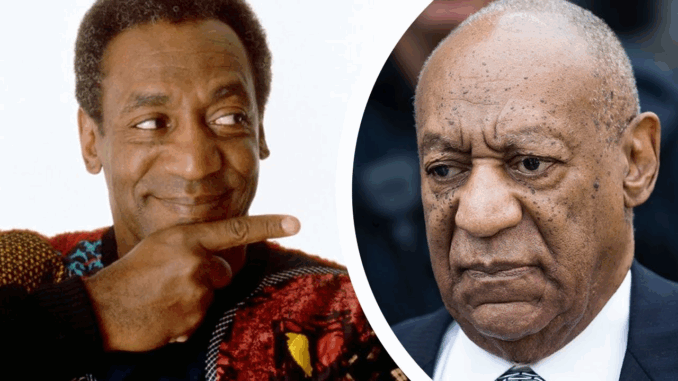
When The Cosby Show premiered on NBC on September 20, 1984, few could have imagined that it would not only become one of the most successful sitcoms in television history but also a groundbreaking force that reshaped how Black families were portrayed on screen. Created by comedian and actor Bill Cosby, the show ran for eight seasons until 1992, redefining the American sitcom and inspiring generations.
A New Image of the Black American Family
At the heart of The Cosby Show was the Huxtable family—upper-middle-class, educated, and thriving in Brooklyn, New York. Cliff Huxtable, played by Bill Cosby, was an obstetrician with a sharp wit and a playful sense of humor. His wife Clair, portrayed by Phylicia Rashad, was a successful attorney, equally strong-willed, intelligent, and compassionate. Together, they raised five children in a home filled with discipline, warmth, and wisdom.
What set the Huxtables apart was not just their wealth or status, but how the show humanized and normalized their experience. They were not portrayed as an exception, but as a realistic family—Black, professional, and deeply relatable to viewers across racial and economic lines. In doing so, the show challenged decades of stereotypical portrayals of Black families on television.
Mass Appeal and Unprecedented Ratings
The Cosby Show quickly became a ratings juggernaut. By its second season, it was the number one show in America, a position it maintained for five consecutive years. Its blend of smart humor, moral storytelling, and family dynamics attracted viewers of all backgrounds. At its peak, the show reached over 30 million viewers weekly, cementing its status as a television phenomenon.
Critically acclaimed and beloved by audiences, the show earned numerous awards, including multiple Emmys and Golden Globes. It was also praised for its attention to detail, cultural nuance, and the chemistry among its cast members. Phylicia Rashad made history as the first Black woman to win the Emmy for Lead Actress in a Comedy Series.
A Lasting Cultural Impact
Beyond the screen, The Cosby Show had a profound cultural impact. One of its most notable influences was the promotion of education. Characters often wore sweatshirts from Historically Black Colleges and Universities (HBCUs), subtly encouraging Black youth to value higher education and cultural pride. This visibility helped raise awareness and increase enrollment in HBCUs during the show’s run.
The series also paved the way for a new generation of Black-centered television shows, such as A Different World (a direct spinoff), Family Matters, Living Single, and The Fresh Prince of Bel-Air. It showed that stories about Black families could be universal and commercially successful, reshaping the television industry’s understanding of representation and audience demand.
A Complicated Legacy
However, in the 2010s, the legacy of The Cosby Show became clouded by the serious criminal allegations and eventual conviction of Bill Cosby for sexual assault. Networks pulled reruns from syndication, and institutions rescinded honors previously granted to Cosby. The fallout prompted a national conversation about separating the art from the artist and reevaluating once-beloved cultural works.
While many continue to celebrate The Cosby Show for its pioneering role in television history, others struggle to reconcile its cultural contributions with the troubling reality surrounding its creator. This duality has left the show in a complex position—both a symbol of progress and a reminder of how easily legacies can be tainted.
Conclusion: A Landmark, Then and Now
Despite the controversy, The Cosby Show remains a landmark in television history. It gave audiences a powerful, affirming depiction of Black family life, challenged stereotypes, and changed the direction of American sitcoms. Its influence is still visible in today’s media landscape and in the careers it helped launch.
In remembering The Cosby Show, we are reminded of both the heights that television can reach and the ongoing need to hold cultural figures accountable. It was a show that made millions laugh, think, and dream—and in many ways, it still echoes today.
